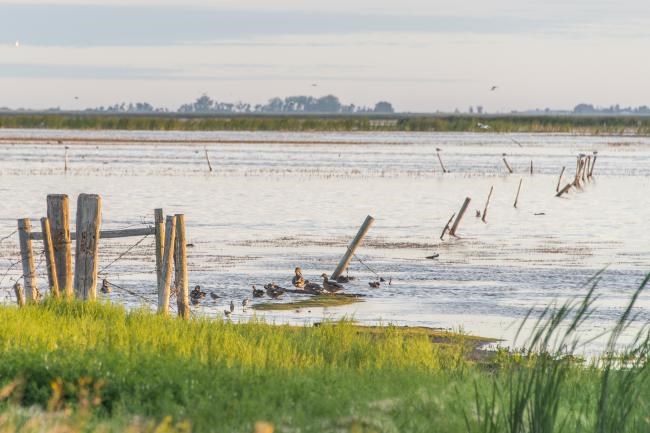In the 2017 documentary Watershed Guardians of the Fraser River, filmmaker Joceyln Demers features a number of local heroes working for a healthier Fraser River watershed.
Today, our governments are at a critical crossroads: Either we advance Metro Vancouver’s regional growth strategy (Metro Vancouver 2040) or we uphold the status quo, building bigger, fossil fuel-dependent industries that jeopardize both our ecological and human health.
The Council of Canadians advocates for democracy, fair trade, public health, sustainability and water-related issues. Its local chair, Lynn Armstrong, describes our current dilemma as such: The debate as to whether or not to replace the George Massey Tunnel under the south arm of the Fraser River with a costly 10-lane “super bridge” misses the core issue. It’s not about traffic congestion.
Armstrong says we have a problem with two mutually exclusive world views facing the future of our region. One view acknowledges our need to address climate change by honouring the United Nations’ Sustainable Development Goals: to shift as quickly as possible to clean renewable energy, improve public transit, retain farmland, promote local economies and protect the local environment. The other worldview involves development and industrialization of the Fraser River estuary to accommodate fossil fuel industries such as the Vancouver International Airport’s jet-fuel line, Deltaport’s growing coal exports and Kinder Morgan’s TransMountain pipeline expansion.
Starting a new year can come with fresh motivations to adopt healthier and/or more positive habits. Reflecting back on the past 29 articles of the Living Green column, here are the top take-home messages we can adopt to make a difference here and now:
• Eat beans instead of beef. Last August, theatlantic.com reported that if every American made this relatively small, single-food substitution, the U.S. could come close to meeting its 2020 greenhouse-gas (GHG) emission goals, pledged by former president Barack Obama in 2009. This one dietary change alone could achieve between 46 and 74% of the GHG reductions needed to meet the target. The climate impact of beef is huge. According to the United Nations, 33% of Earth’s arable land is used to grow crops for livestock. (Cattle in Brazil, for example, consume far more calories in beans than they yield in meat, meaning far more forests are clearcut to grow cattle feed than if the beans were simply eaten by people.) Furthermore, 26% of Earth’s ice-free terrestrial surface is used to graze livestock. In total, almost a third of the land on Earth is used to produce meat and animal products.
• Wear what is fair. Our choice of clothing is our second largest footprint. Textile dyes contribute to water pollution and, along with the manufacturing of such synthetics as viscose rayon, can be deadly to textile labourers. Social justice issues continue to plague the textile industry. Seek Canadian/U.S. (ethically) made products, shop consignment/charity and ask your retailer how the items you’re pondering purchasing were made. Choose natural fabrics (wool, linen, hemp, organic cotton) over synthetics and composites.
• Love where you live — shop local. When you choose a local independent business as opposed to a chain, four times the money stays in your community and those businesses are 250% more likely to support local events, teams and charities. Build resiliency for those who live and work among you. Visit shoplocalportmoody.ca, shopportcoquitlam.com, austinheights.ca and the tricitieschamber.com for information on local businesses where you can spend your money.
• Leave the car at home. Spice up your commute once a week by taking the bus or your bike to work/school. It feels great to energize your body and brain, and active commuting connects you more closely to community.
• Do away with disposables. Avoid plastics and single-use items/containers that contribute to unnecessary waste and deadly ocean pollution. Grab that travel mug (or request a ceramic one at the counter) and carry food in re-usable (durable) containers. Before making a non-perishable purchase, ask: Do I really need this? Who made it and how long will it last? Is it repairable?
• Speak up. Let your elected officials know what you care about. The more of us who vocalize what we value and what we want for the future, the greater our influence for positive change. Not-for-profits like the Council of Canadians, Leadnow and Dogwood BC work strategically for a brighter future and welcome your support.
This year, start with one new habit that makes you and the planet happier.
Melissa Chaun of Port Moody is an ecologist with a passion for all things sustainable. She is events co-ordinator with the Rivershed Society of BC, volunteers on various city committees and co-ordinates the monthly meetings for Tri-City Greendrinks. Her column runs monthly.



